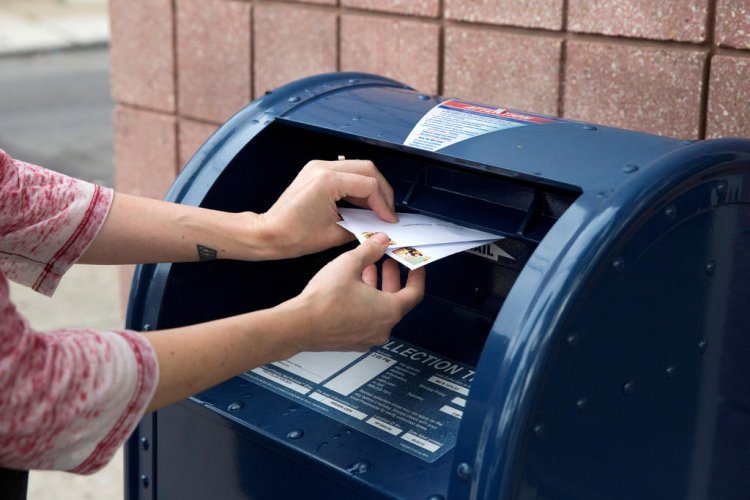US Postal Debate Pushes Democrats to Re-acknowledge The Plan

Turmoil at the U.S. Postal Service (USPS) is causing some Democrats and local election officials to rethink their vote-by-mail strategies for November’s presidential election, shifting emphasis to drop boxes and early voting that bypass the post office.
The 2020 contest promises to be the nation’s largest test of voting by mail. But U.S. President Donald Trump’s relentless, unsubstantiated attacks on mail balloting, along with cost-cutting that has delayed mail service nationwide, have sown worry and confusion among many voters.
Democratic officials who just weeks ago were touting their dominance in mail balloting during a recent rash of primaries are now cautioning supporters of presidential challenger Joe Biden to be wary. Operatives in battleground states, including Pennsylvania, are particularly concerned about ballots arriving too late to count for the Nov. 3 election.
“We are considering telling voters that if they haven’t mailed out their complete ballot by Oct. 15, don’t bother. Instead, vote in person or drop off the ballot” at an election’s office, said Joe Foster, the chairman of the Democratic Party in Montgomery County, the most populous of Philadelphia’s suburban counties. “We want to make sure every vote counts.”
Other local Democratic leaders, from states like Florida and North Carolina, told Reuters they also are weighing urging voters to submit mail ballots weeks ahead of the election or else vote in person.
On Tuesday, Postmaster General Louis DeJoy announced he was suspending cost-cutting measures he had put in place in recent weeks that had led to widespread service disruptions. Those changes included limits on employee overtime, orders for trucks to depart on schedule even if there was mail still to be loaded, and the removal of some mail sorting machines.
“The Postal Service is ready today to handle whatever volume of election mail it receives this fall,” DeJoy said in a statement. He also promised to deploy “standby resources” beginning Oct. 1 to satisfy any unforeseen demand.
But some Democrats said the damage is already done. Many don’t trust DeJoy - who was a major Trump campaign donor before becoming postal chief - to restore service at the independent government agency amid a presidential race that polls say Biden is leading.
“Return the mailboxes you removed,” Rep. David Cicilline of Rhode Island said on Twitter. “Return the sorting machines you took out. Restore the regular hours of post offices you cut short. Return postal vehicles you took. The list goes on.”
A USPS spokesman declined to comment. DeJoy is expected to provide more detail on his plans in testimony before the Senate on Friday and the House of Representatives on Monday.
Local Democratic officials, operatives and campaign workers said they are not waiting for a Washington solution.
In the competitive state of Michigan, Democratic voter outreach volunteer Karen McJimpson, 64, is phoning voters to encourage them to hand-deliver their absentee ballots directly to specified drop boxes or elections offices in light of concerns about mail delivery. She said Tuesday’s news about restored service gave her no comfort. “I don’t trust it,” said McJimpson, who volunteers with a nonprofit called Michigan United. “There has been too much noise around this, and someone is clearly pulling the strings. We are going to proceed as planned: drop the ballots off.”
Upheaval at the USPS has reshuffled some Democrats’ plans for other types of election mail as well.
Brad Crone, a Democratic strategist in North Carolina, plans to send up to two million mailers between now and Election Day supporting various state and congressional candidates. The campaign flyers are mailed directly from his printer, who last week sent him a notice: If Crone wants to mail anything beyond Oct. 19, he must sign a waiver acknowledging that it might not get there before Election Day.
Crone said he will now stop his mailings by Oct. 4, three weeks earlier than he had originally planned.















































